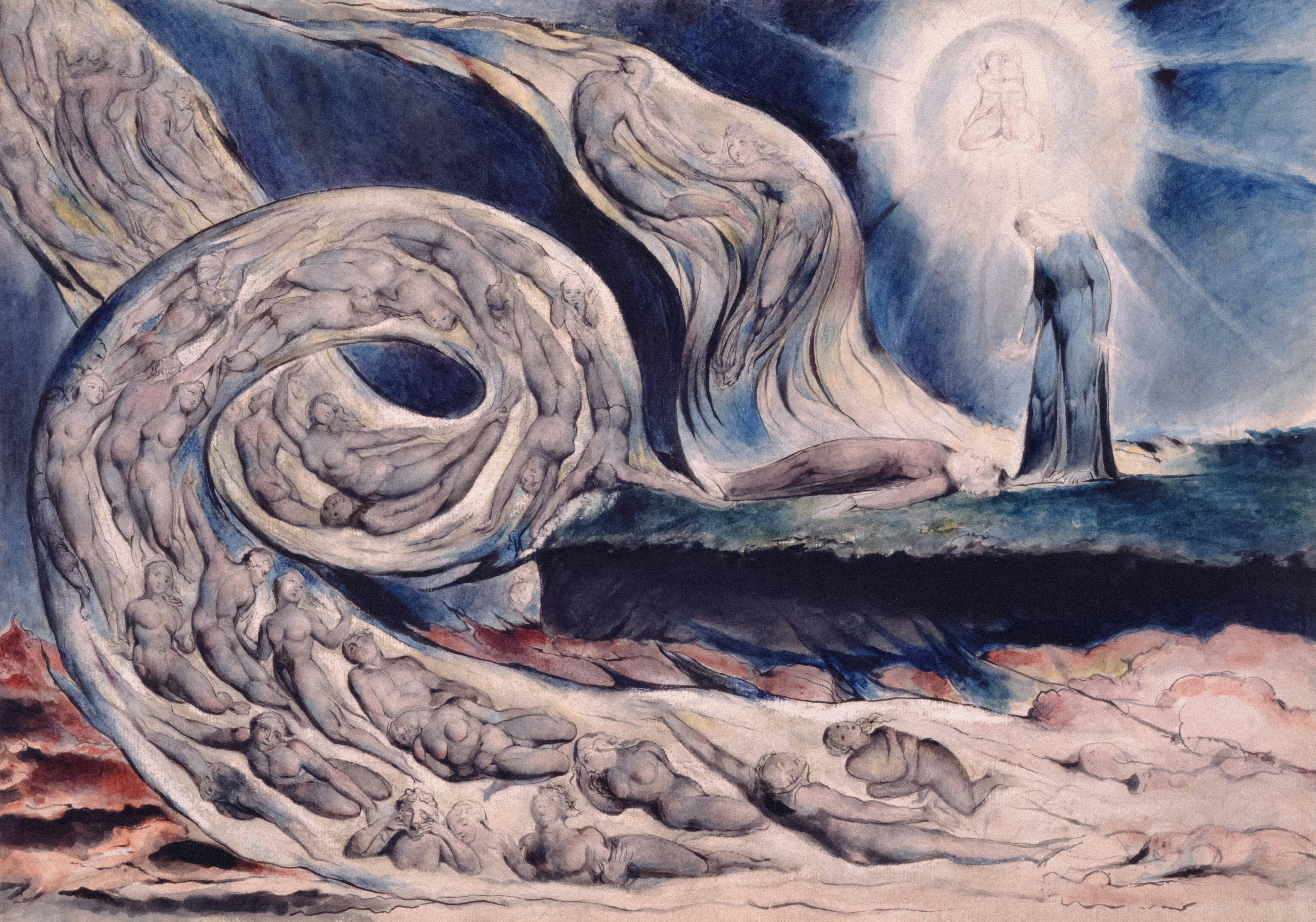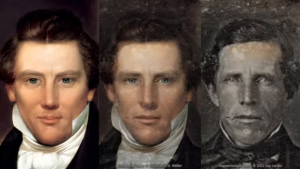Brendon Urie: Growing Up Mormon and Beyond

Introduction to Brendon Urie
Brendon Urie, a notable figure in the contemporary music scene, is best recognized as the lead vocalist and multi-instrumentalist of the rock band Panic! At The Disco. Born on April 12, 1987, in St. George, Utah, Urie’s upbringing within a Mormon household deeply influenced both his personal life and artistic endeavors. Throughout his career, he has garnered a reputation for his distinctive vocal style, emotional range, and eclectic musical influences, which have richly contributed to the band’s evolution from its pop punk origins to its more recent ventures into a blend of genres, including rock, pop, and electronic.
Urie’s journey began when he joined Panic! At The Disco at the young age of 16 after forming the band with high school friends. The group’s debut album, “A Fever You Can’t Sweat Out,” released in 2005, was a commercial success and critically acclaimed, establishing their presence in the industry. With hit singles such as “I Write Sins Not Tragedies,” the album showcased Urie’s unexpected versatility and captivating stage presence. Over the years, Panic! At The Disco has produced a series of chart-topping albums that highlight Urie’s growth as a songwriter and performer.
His impact extends beyond just musical achievements; Urie has also been a prominent voice for LGBTQ+ rights, openly supporting the community despite his conservative upbringing. This juxtaposition of his personal beliefs and artistic expression provides insight into how his formative years have shaped his worldview. Brendon Urie’s career continues to flourish, and his dynamic style and commitment to authenticity make him a powerful figure in modern music, with a legacy that will likely resonate with audiences for years to come.

Mormonism: A Brief Overview
Mormonism, officially known as The Church of Jesus Christ of Latter-day Saints (LDS), is a religious movement founded in the early 19th century by Joseph Smith. The faith emerged in the United States and has since evolved into a global religion, with millions of adherents worldwide. Central to Mormon belief is the Book of Mormon, regarded as a sacred text alongside the Bible. Mormons believe that this additional scripture contains the writings of ancient prophets who lived on the American continent, providing a fuller understanding of Jesus Christ’s teachings.
The core beliefs of Mormonism encompass fundamental doctrines such as the belief in a divine plan of salvation, the importance of family, and the practice of baptism for the dead. Family, in particular, is a pivotal aspect of the faith, with teachings emphasizing eternal family relationships. This belief fosters strong family units within the community, often leading to rich traditions and social gatherings. Mormons are encouraged to engage in community service, uphold high moral standards, and maintain a close relationship with God through prayer, scripture study, and participation in church services.
Growing up in a Mormon community typically involves navigating a unique set of social expectations and cultural norms. Members strongly value kindness, integrity, and service to others, shaping the interpersonal dynamics within families and communities. Children are often raised with an emphasis on spirituality and moral compass, encouraging them to cultivate faith from a young age. This upbringing plays a significant role in developing identity and values. The community’s adherence to specific lifestyle choices, such as abstaining from alcohol and tobacco, further reinforces a shared cultural identity that can influence personal and communal behaviors.
Understanding these aspects of Mormonism is crucial to comprehending Brendon Urie’s upbringing, the environment in which he was raised, and the influence of these beliefs on his artistic expression and personal life.

Brendon’s Early Life and Family Background
Brendon Urie was born on April 12, 1987, in St. George, Utah, into a devout Mormon family that had a significant influence on his upbringing. He was the youngest of five children, and his family dynamics played a crucial role in shaping his early experiences. Growing up in a tight-knit family environment, Brendon was surrounded by the values of faith, community, and a strong work ethic, all central tenets of the Mormon faith.
The Urie household was characterized by a blend of support and expectations, where family members were encouraged to pursue their passions while adhering to their religious beliefs. This duality created a fascinating backdrop for Brendon as he navigated his identity during his formative years. Music became a significant outlet for him; from a young age, he was encouraged to explore different avenues of creativity. The encouragement from his family helped him develop his innate musical talents, as he learned to play various instruments, including the guitar and piano.
However, growing up in a conservative religious environment also posed challenges for Brendon. The stringent expectations surrounding lifestyle choices and personal beliefs often clashed with his burgeoning identity as an artist. Balancing his passion for music with the doctrinal beliefs of the Mormon Church required Brendon to confront his values and desires. This internal struggle was reflective of his journey toward self-discovery, as he worked to reconcile his love for music with the teachings of his upbringing. While the values instilled by his family provided a solid foundation, they also shaped the dynamic between his identity as an individual and as an emerging musician.

The Intersection of Faith and Music
Brendon Urie’s journey into the world of music is deeply intertwined with his upbringing in the Mormon faith. Growing up in a household where religion played a significant role, Urie’s early exposure to music was both prominent and constrained. His family fostered a strong musical environment; however, the cultural underpinnings of the Mormon community often dictated the boundaries of artistic expression. Music, for Urie, was a vital outlet for creativity and emotion, providing a means to connect with deeper aspects of himself that were sometimes at odds with the values instilled in him by his faith.
In his youth, Urie found solace in various musical genres that were not typically sanctioned by the Mormon community. This burgeoning passion presented a paradox: while music offered a realm of personal expression, it also posed potential conflict with the more conservative tenets of his upbringing. The struggle between his inherent desire to explore this art form and the expectations tied to his religious background became a defining aspect of his early life. As he journeyed through adolescence, Urie increasingly gravitated towards musical influences that lay outside the mainstream, listening to rock and punk bands that resonated with his experiences and feelings.
Crucial moments in his development arose when Urie’s familial and social circles acknowledged the power of music in fostering community and joy. Engaging with music became a celebration, a way to communicate experiences and emotions that sometimes contradicted traditional teachings. As he navigated this intersection of faith and artistry, Brendon Urie realized that making music could serve as both a personal sanctuary and a means of breaking free from the religious constraints that sought to limit him. This duality not only shaped his understanding of music but also propelled him towards a career that would ultimately transcend the boundaries of his beginnings, offering him a platform to articulate his journey from a faith-driven upbringing to a vibrant artistic life.

Struggles with Identity and Expectations
Brendon Urie’s upbringing within the Mormon Church profoundly shaped his identity, imposing a complex set of expectations on him as he navigated his formative years. The teachings and cultural norms of his faith played a pivotal role in defining the parameters of success and propriety. As a young individual within this religious framework, Urie often grappled with reconciling his personal ambitions with the ideals set forth by his community. The expectation to adhere to these values occasionally clashed with his burgeoning desire to pursue a career in music, which was not always aligned with the conservative perspectives prevalent in his upbringing.
These internal conflicts fostered a profound struggle with self-acceptance, a theme that reverberates throughout Urie’s songwriting. His lyrics often reflect a quest for authenticity in the face of societal and familial pressures. Themes of identity, desire, and the search for belonging pepper his work, drawing from his experiences of bifurcated identity—one part devoted member of the Church, and another part aspiring artist yearning to break free from the constraints of those expectations. This duality has lent a raw emotional quality to his music, resonating with audiences who might share similar feelings of discord between personal aspirations and cultural expectations.
Urie’s journey towards self-acceptance was not linear but rather a nuanced evolution shaped by both the liberation offered by his artistic pursuits and the confines of his upbringing. As he transitioned into a successful musician, he began to assert his individuality more prominently, creating a distinct space where he could embrace both his faith and his passion for music without compromising either aspect of his identity. The tension between these two worlds ultimately fueled his artistry, making his work compelling and relatable to a diverse audience.

Departure from Mormonism
Brendon Urie’s journey away from Mormonism represents a significant turning point in his life, marking a departure from the beliefs and values that shaped his early years. Raised in a devout Mormon household, Urie’s upbringing was steeped in the traditions and doctrines of the Church of Jesus Christ of Latter-day Saints. However, as he matured, he began to grapple with the constraints that these beliefs imposed on his identity and personal freedom.
One of the primary reasons Urie distanced himself from the Mormon faith was his increasing desire for self-expression. The rigid nature of the church’s teachings often clashed with his artistic inclinations, particularly as he entered the music industry. As a member of Panic! At The Disco, Urie’s creative freedom took precedence, and he found that the religious framework he once adhered to was no longer compatible with his evolving worldview. This internal conflict spurred a journey of self-discovery, leading him to reevaluate his beliefs and ultimately stray from Mormonism.
The impact of this decision reverberated through Urie’s personal life and relationships. Friends and family members who strictly practiced the faith struggled to understand his choices, occasionally resulting in strained dynamics. However, this departure also afforded Urie a greater sense of autonomy, allowing him to embrace a more inclusive perspective on life and art. His experiences with the church and the subsequent departure have shaped both his personal narrative and his musical career, serving as powerful themes within his work.
Through his lyrics and public persona, Urie channels the complexities of his past, illustrating a profound transformation. As he navigated the nuances of leaving a faith that defined his youth, he cultivated a unique voice characterized by authenticity and vulnerability. This evolution not only reflects personal growth but also resonates widely, as many artists grapple with their roots and the influences that shaped them.

Influence of Mormon Culture on Urie’s Music
Brendon Urie, the frontman of Panic! At The Disco, grew up in a predominantly Mormon environment, which has significantly shaped his musical identity and lyrical themes. The values, beliefs, and expectations inherent in Mormon culture have woven themselves into the fabric of Urie’s songwriting, creating a rich tapestry of personal and communal experiences that resonate throughout his work. The interplay of faith, doubt, and self-discovery is prevalent in many of his songs, reflecting the complexities of his upbringing.
For instance, the album “Too Weird to Live, Too Rare to Die!” captures Urie’s struggle with the restrictive aspects of his religious background while also embracing his individuality. Tracks like “This Is Gospel” delve into themes of faith and the search for meaning, highlighting the internal conflict between doctrinal teachings and personal beliefs. Through his lyrics, Urie portrays the duality of his upbringing—balancing the teachings of the Church with his quest for authenticity and self-expression.
Additionally, songs such as “I Write Sins Not Tragedies” explore the themes of societal judgment and hypocrisy, which can be viewed as reflections of Urie’s experiences within a community often defined by rigid standards. The recurrent motifs of questioning and exploration throughout his discography echo the doubts he experienced as he navigated the expectations of his Mormon roots. This ongoing theme of self-discovery is a testament to his ability to transform his experiences into relatable narratives, drawing listeners into a dialogue about faith, acceptance, and personal growth.
In blending elements of a conservative upbringing with his evolving identity as an artist, Brendon Urie’s music serves as both an exploration of and a departure from his Mormon culture, highlighting the profound impact of his early life on his creative journey.

Brendon Urie as a Voice for Change
Brendon Urie, the lead vocalist of Panic! At The Disco, has emerged as a powerful advocate for LGBTQ+ rights, using his platform to challenge traditional Mormon values and encourage acceptance. Growing up in a faith that often holds conservative views, Urie’s journey reflects a significant transformation that resonates with many in the LGBTQ+ community and beyond. His public statements and philanthropic efforts highlight a commitment to embracing individuality and promoting inclusivity.
One of the most notable aspects of Urie’s advocacy is his vocal support for LGBTQ+ rights. He has openly identified as pansexual, which has prompted discussions about sexual orientation and acceptance within both the music industry and society at large. Urie has utilized his influence to raise awareness about various LGBTQ+ issues, ensuring that the voices of marginalized individuals are heard. By sharing his personal experiences, he confronts the stigma often associated with being part of the LGBTQ+ community, especially in the context of conservative religious backgrounds.
Beyond mere words, Urie actively participates in charitable efforts that support LGBTQ+ organizations. He has publicly endorsed groups such as GLSEN, which aims to create safe and affirming schools for LGBTQ+ students, and the Trevor Project, which provides crisis intervention services to young LGBTQ+ people. Through these contributions, he demonstrates a sustained commitment to improving the lives of those who face discrimination and marginalization.
Urie’s impact extends beyond his philanthropic endeavors. By confronting outdated beliefs and advocating for change, he serves as a role model for young individuals navigating their identities, particularly those from backgrounds similar to his own. His advocacy challenges traditional Mormon values by promoting love, understanding, and acceptance, thereby fostering a culture of inclusivity within and outside the music industry.

Conclusion: The Journey of Acceptance
Brendon Urie’s journey from a Mormon upbringing to his current status as a prominent artist exemplifies a profound evolution of identity and self-acceptance. Growing up in a conservative community, Urie faced the challenge of reconciling his personal desires and beliefs with the expectations set forth by his religious environment. His early experiences undoubtedly shaped his artistic direction and public persona, providing a rich backdrop for the messages he conveys through his music.
As Urie found his voice in the entertainment industry, he began to emphasize themes of individuality and personal freedom, resonating with a diverse audience. This quest for self-acceptance is a cornerstone in his narrative. His music not only reflects his personal struggles but also serves as a beacon for those grappling with their identities in the face of societal pressures. It is this willingness to share his vulnerabilities that has endeared him to fans around the world, allowing them to find solace and strength in his words.
The complex relationship between faith and identity is another significant aspect of Urie’s journey. His departure from traditional beliefs has influenced his creative expression, prompting discussions about faith’s role in one’s life. While he acknowledges the impact of his upbringing, Urie advocates for acceptance of all identities, illustrating not just his personal growth, but also his commitment to fostering inclusivity. This transformative process showcases the importance of embracing one’s true self, regardless of the constraints imposed by past beliefs.
In conclusion, Brendon Urie’s story is one of resilience and growth. His ability to navigate the complexities of his past while emerging as a successful artist highlights the importance of acceptance and the continuous journey of finding one’s identity. Urie’s experiences serve as an inspiration to many, illustrating that it is possible to break free from limiting beliefs and forge a new path that honors both authenticity and creativity.













Leave a Reply
You must be logged in to post a comment.